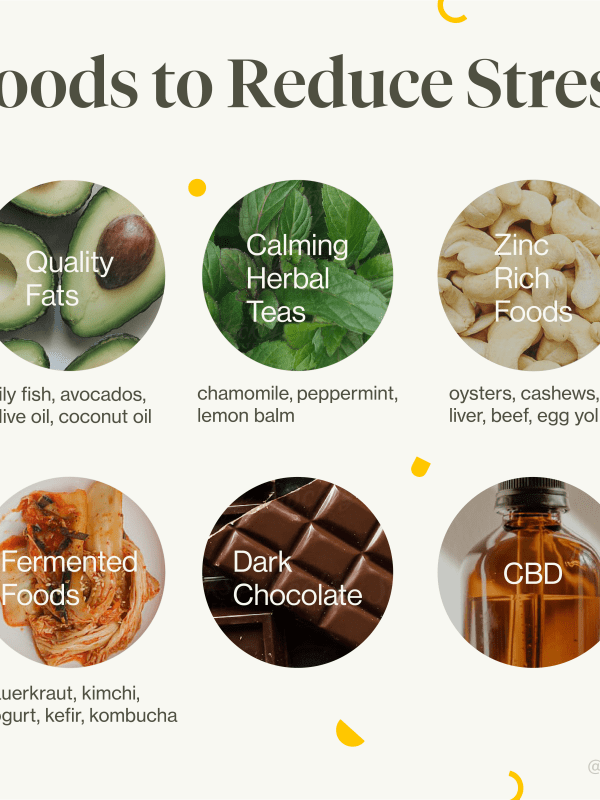Cortisol: The Stress Hormone

Cortisol: The Stress Hormone
Have you ever been really, really stressed out? Have you ever woken up early in the morning, eyes wide open, knowing almost immediately that you will not be returning to sleep? In that case, you already know an essential part about cortisol, which is how it feels.
Cortisol is the awake-and-alert hormone, but it’s more commonly known as the fight-or-flight hormone. Its association with stress gives this hormone a negative reputation. It is often talked about as something we want to reduce. Although too much cortisol can have negative consequences for your health, it serves a vital purpose.
Cortisol is here to help us.

The Benefits of Cortisol in the Morning
Cortisol has many functions in the body. Some of these functions are more well-known than others. For example, the importance of reducing inflammation and supporting blood sugar levels are two aspects of health that have become very mainstream. Therefore cortisol’s role as a potent anti-inflammatory and supporting role in stabilizing blood sugar are more commonly known functions. Perhaps a lesser-known function is the Cortisol Awakening Response.
Cortisol alternates with melatonin in a 24-hour window. This is known as a circadian rhythm. You can think of cortisol as the sun hormone, rising in the morning and slowly declining into the evening, whereas melatonin is like the moon coming out to take over for the night.
Generally, when we wake up in the morning, it is cortisol that wakes us up. If everything is working as it should, cortisol will continue rising until it peaks about 30-45 minutes after waking, when we are presumably getting our day off the ground. 50% of our entire day’s worth of cortisol is typically secreted in the first 45 minutes of being awake.
The Cortisol Awakening Response is also directly associated with general well-being and longevity. Multiple studies, most notably the Whitehall II study, showed that a flatter level of cortisol levels across the day was correlated with an increased risk of cardiovascular disease mortality. This study suggested that cortisol slope might be a better predictor of early mortality than obesity or smoking! While the exact mechanism behind this may not be fully understood, the correlation is well established: healthy cortisol production and circadian rhythm play a significant role in our overall health.

The Trouble with Cortisol at Night
The importance of proper cortisol secretion in the morning is matched by limiting cortisol stimulation at night. Cortisol is not dinural, meaning it isn’t only active during the daytime. Cortisol rises and falls in relation to stress. It is important to limit stress in the evenings to limit cortisol production and encourage the transition of power to melatonin.
Melatonin is the opposite side of the coin when it comes to the circadian rhythm. Where cortisol stimulates and energizes you in the morning, melatonin relaxes and eases you at night. The transition from high cortisol levels in the morning to high melatonin levels at night encourages deep, restful sleep.
It’s worth bearing in mind that cortisol will always win when cortisol and melatonin compete with one another. If cortisol is high at night, it won’t matter if there is a lot of melatonin in the picture; you will most likely be wide awake. This is because cortisol is all about helping us survive. Immediate survival is always the top priority, certainly more than sleep.

The HPA Axis- Cortisol's Role in Our Survival Circuitry
This brings us to the mighty HPA Axis! The Hypothalamus-Pituitary-Adrenal axis, or HPA axis, is a communication network between three glands responsible for controlling the production and release of cortisol from the adrenal glands.
When we perceive an event or circumstance as stressful, our hypothalamus sends a chemical signal to the pea-sized pituitary gland, which in turn sends a signal to the adrenal glands. The adrenals are about the size of your thumb and sit like hats atop your kidneys. They make a variety of hormones, including cortisol, according to how much the hypothalamus has requested.
Cortisol is high during the awakening response and during any time we perceive something to be stressful. Our brain sends the “make cortisol” signal to the adrenals when survival is in question. From an evolutionary perspective, our body doesn’t know the difference between a primordial predator and a forgotten deadline at the office. In either situation, we will instinctively tense up, secrete cortisol, and switch into fight-or-flight mode.
The inability to differentiate between life-threatening situations or something as menial as being stuck in traffic is further complicated when we add internal stress into the equation. That means internal factors like negative feelings, food allergies, blood sugar imbalances, and other internal stressors can also illicit a cortisol response.
But here is the twist: sources of stress can be internal or external. This means that stressful life events, such as getting stuck in traffic when you’re already late for an appointment, can undoubtedly cause cortisol secretion. However, so can sneakier, stealthier internal factors like hidden infections, food allergies, blood sugar imbalances, heavy metals, toxic chemicals, and other stressors inside the body.

Food and Cortisol
Maintaining blood sugar balance is the single most crucial factor when it comes to our diets and cortisol levels. This is due to cortisol’s central role in keeping glucose (aka. sugar) levels consistent in our bloodstream. When we are in a state of stress, our cells require more energy in the form of glucose. Cortisol ensures glucose is readily available for the cells through gluconeogenesis. Gluconeogenesis is the process of making glucose from non-carbohydrate sources. Glucose can be made from fats or proteins through this process.
If you wake up in the middle of the night, it might be a sign that your blood sugar is low and cortisol is stepping in. Since we cannot consume food while we sleep, some individuals might experience low blood sugar during the night. Cortisol will step in and ensure blood sugar is kept stable through gluconeogenesis. As we discussed earlier, cortisol is stimulating. If this situation happens, we are likely to wake up because of cortisols stimulating effects. If this sounds like you, try having a snack that is high in protein and fat and low in carbohydrates before you go to bed. The more effectively we can maintain blood sugar balance, the less need for cortisol and gluconeogenesis.
I firmly believe cortisol to be our friend, despite the common misconception that cortisol is bad. It gets us moving in the morning, helps deliver fuel to our cells when they need it, and allows us to pay attention!
The problem is when cortisol is chronically elevated. No one likes to feel wired, anxious or stressed. Fortunately, there are many natural ways to support cortisol balance and remind our bodies that they are safe and cared for.
Without a doubt, the best cortisol and stress managing tool is not some fancy supplement but a lifestyle.





